Key takeaways:
- Legal aid programs offer critical assistance to those unable to afford legal representation, promoting social justice and empowerment.
- Navigating the application process can be challenging; organization and support from local offices and community resources are essential.
- Personal experiences with legal aid highlight the importance of shared support and the value of guidance from dedicated professionals.
- Common challenges include understanding eligibility criteria, wait times for assistance, and communication barriers that can complicate the process.
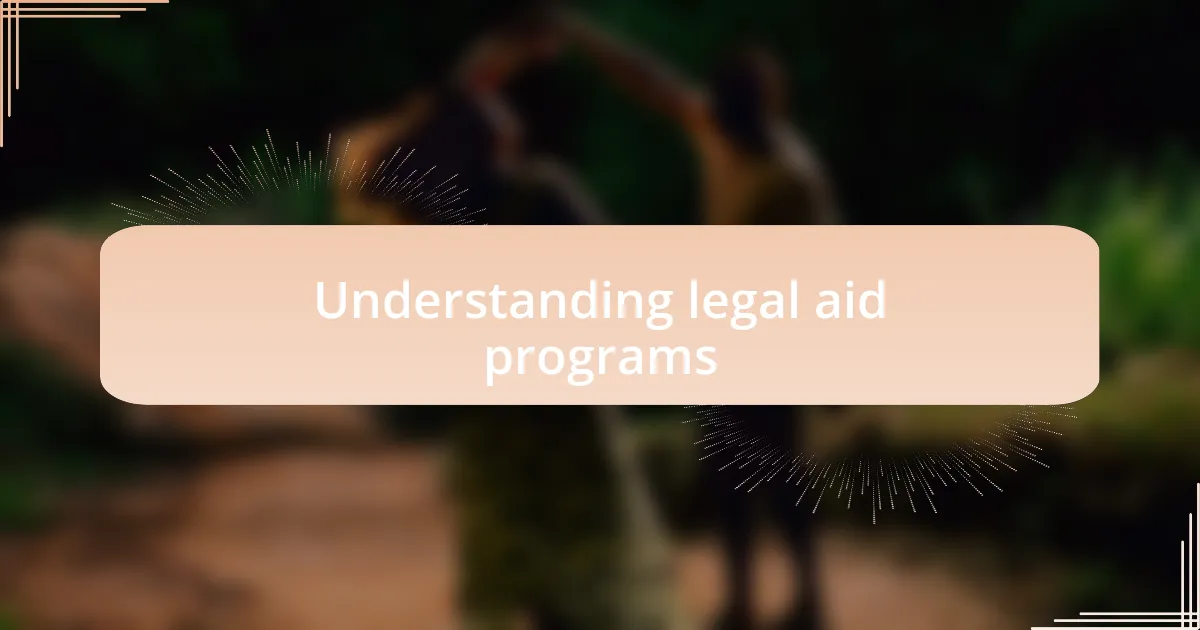
Understanding legal aid programs
Legal aid programs are designed to provide assistance to individuals who cannot afford legal representation. I remember a time when I found myself overwhelmed by a legal issue, feeling lost and unsure where to turn. It was comforting to know that these programs existed, offering not just legal support but also a sense of hope during a challenging time.
Navigating the intricacies of legal aid can be daunting. Have you ever felt that swirl of confusion when you’re trying to decipher eligibility requirements? I certainly did. When I applied for help, I was surprised by the range of services available, from family law matters to housing disputes. It was a relief to discover that there are dedicated professionals ready to guide you through the process.
One of the most significant aspects of legal aid is its commitment to social justice. I often think about how many people, like me, might otherwise suffer in silence without access to proper legal support. This isn’t just about law; it’s about empowerment and giving a voice to those who might feel voiceless. By utilizing these programs, we not only address personal legal challenges but also contribute to a broader movement toward equality.
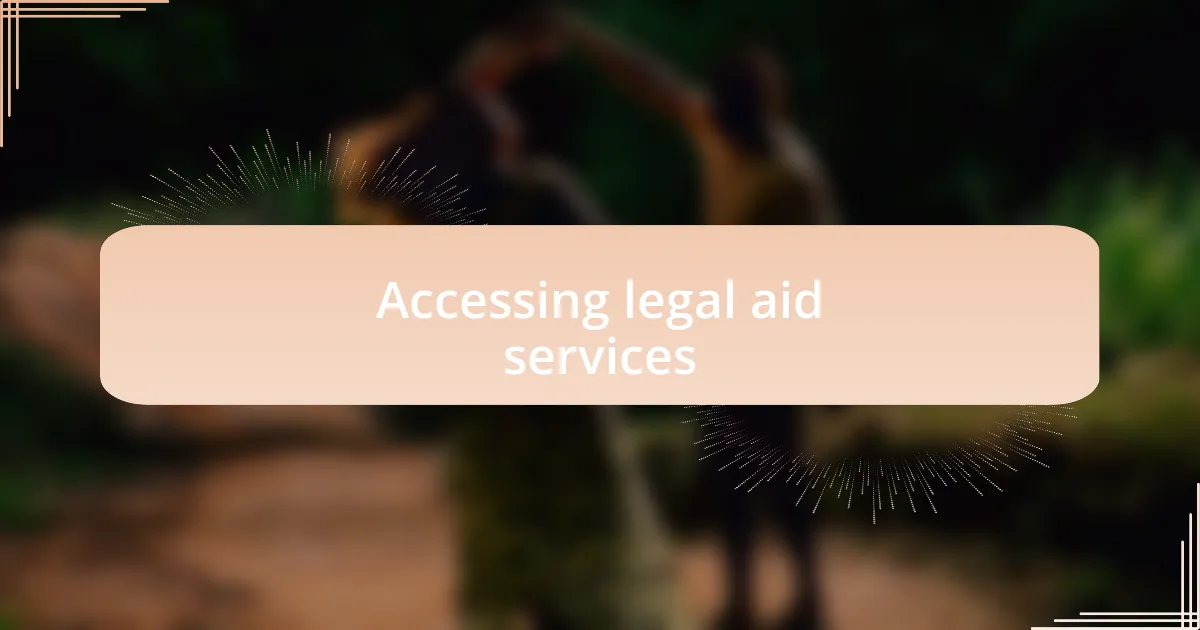
Accessing legal aid services
Accessing legal aid services can sometimes feel like stepping into a maze. When I first tried to navigate the application process, I felt a mix of hope and anxiety. It was essential for me to gather the right documents, and I remember that sense of accomplishment when I finally submitted my application. Did I mention how vital it is to stay organized? I found that keeping everything in one place made the process significantly smoother.
I learned that reaching out to local legal aid offices can be incredibly beneficial. During my search, I discovered that many offer initial consultations to assess your situation. I still recall the relief I felt when a warm and understanding staff member explained my options. That personal touch made all the difference; it was reassuring to know I wasn’t alone in this journey.
As I delved deeper into the world of legal aid, I realized the importance of community resources as well. Support groups and workshops were available to help individuals like me understand their rights better. How often do we overlook the power of shared experiences? Sharing stories with others going through similar struggles not only informed me but also fostered a sense of unity and strength within our community.
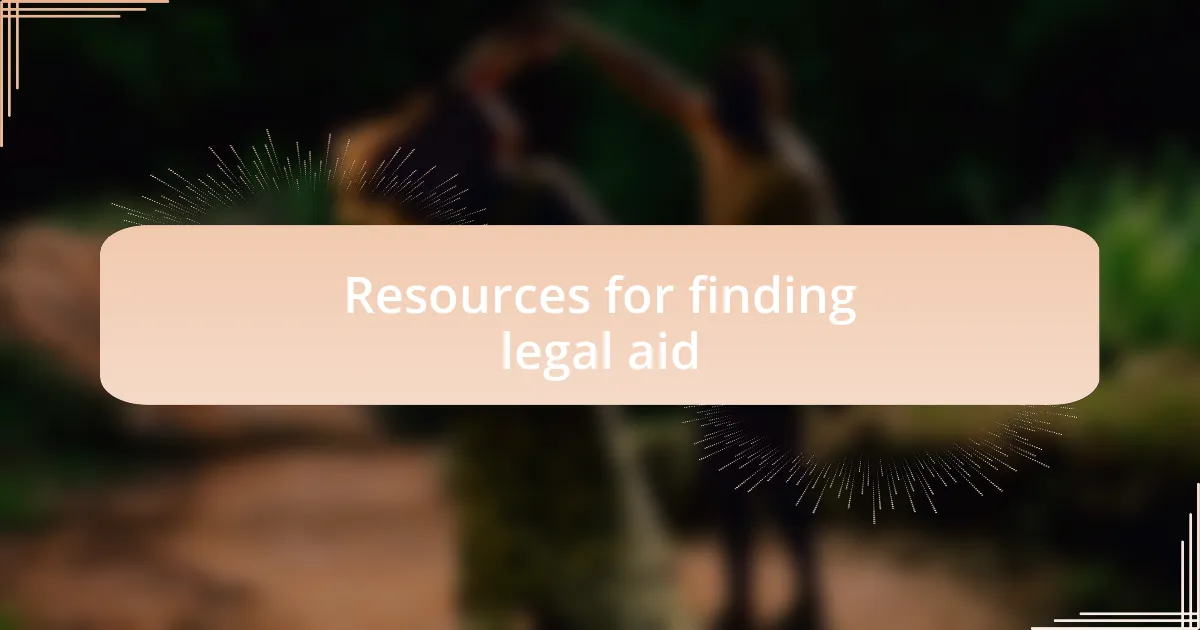
Resources for finding legal aid
Finding the right resources for legal aid can sometimes feel daunting, but there are many avenues to explore. I remember spending hours online, searching for local organizations, and I stumbled upon a fantastic website that listed legal aid services by state. It was like uncovering a treasure map; I felt a wave of empowerment as I realized I had options right at my fingertips.
I also discovered that law schools often have clinics where students provide free legal advice under the supervision of experienced attorneys. I visited one of these clinics and was impressed by how eager the students were to help. Has anyone else ever experienced that blend of hope and anxiety when seeking assistance? For me, sitting down with a dedicated student who genuinely cared about my situation was comforting and inspiring.
Don’t underestimate the power of referrals either—friends and community members can be invaluable resources. I found a mentor within my breakdancing community who had successfully navigated a similar legal challenge. His insights not only guided my search but also instilled a sense of confidence in me. Reflecting on our discussions, I realize how vital it is to lean on those around us when the legal maze feels overwhelming.
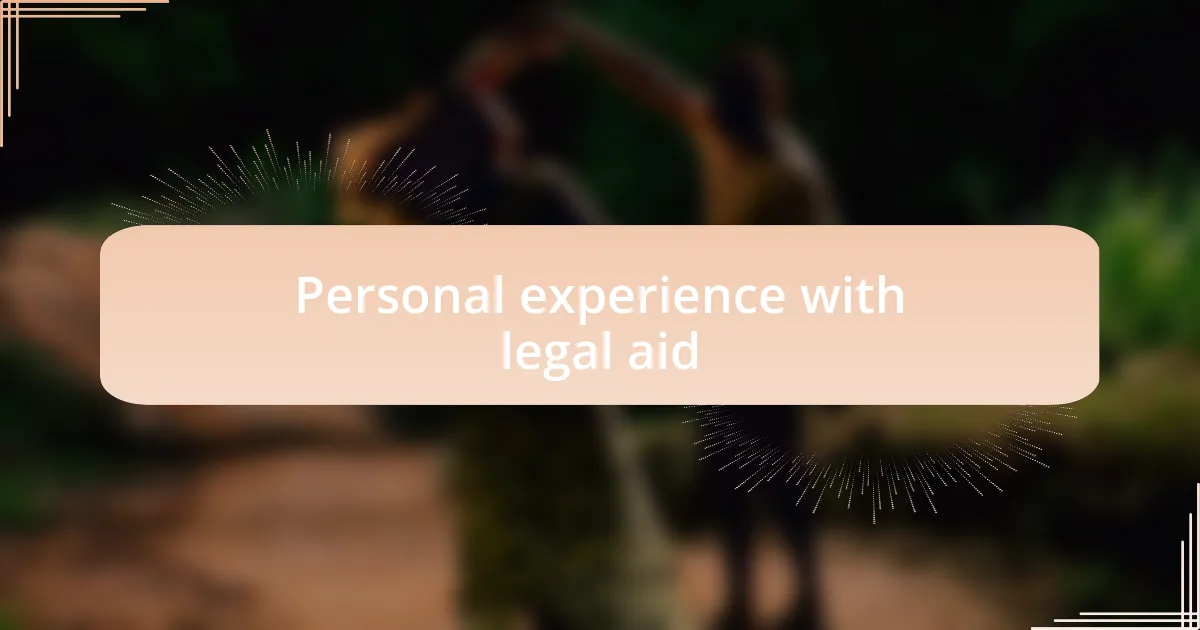
Personal experience with legal aid
When I first accessed legal aid, I felt a mix of excitement and dread. It was a pivotal moment for me, and I vividly remember stepping into that legal aid office, the atmosphere buzzing with urgency, yet surprisingly welcoming. I could see others like me—people seeking help and clarity, all united by the weight of our legal concerns.
Navigating the paperwork was quite the challenge; I often wondered if I was doing things right. At one point, I found myself staring at a stack of forms, reminiscing about all the dance battles I’ve faced—only this time, there was no rhythm to follow. But there was a dedicated attorney who broke down the jargon into bite-sized pieces, making the process less intimidating. Has anyone else felt that sense of relief when someone simply listens and offers guidance? For me, it was a game-changer.
The support group I joined also played a crucial role in my experience. Share your stories, and you’ll often discover others have tread the same path. I recall sitting in a circle, listening to people express their fears and victories. That sense of community made the whole ordeal less isolating. I realized that while the world of legal aid can feel overwhelming, having a shared experience turns daunting journeys into powerful narratives of resilience.
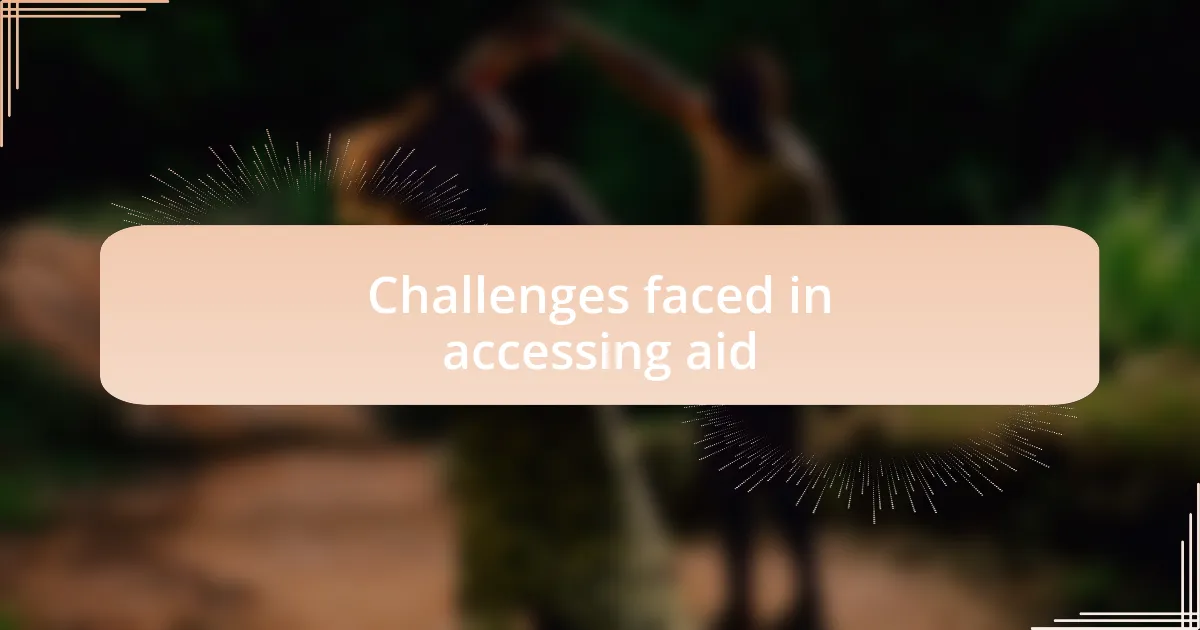
Challenges faced in accessing aid
Accessing legal aid comes with its own set of hurdles. I remember feeling lost in a maze of eligibility criteria that seemed to change every time I tried to decipher them. Has anyone else experienced that sense of frustration when it feels like you’re jumping through hoops just to prove your worthiness for support? It often felt like my story was being reduced to mere numbers and documents, obscuring the personal struggles behind it.
Another challenge I encountered was the wait time for assistance. I often found myself pacing, anxious about the uncertainties surrounding my legal situation. It’s disheartening when your life feels on hold, waiting for a resolution while the clock ticks on your pressing issues. I couldn’t help but think about how dancers prepare for a big performance, rehearsing tirelessly, and yet here I was, unable to take a step forward.
Finally, I faced moments where communication barriers led to misunderstandings. There were times when I didn’t fully grasp the advice given, leaving me with more questions than answers. How many of us have been in a situation where the simplest of explanations still felt convoluted? When that happens, it’s easy to feel overwhelmed, but it taught me the importance of asking for clarification. We shouldn’t shy away from voicing our confusion; after all, clearer communication can make a world of difference in navigating the complexities of legal aid.